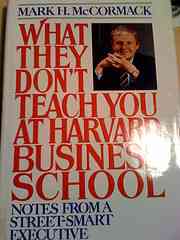Larry Chiang knows how to Tom Sawyer an article by getting others to do his work for him. He solicits nuggets for knowledge from smart people by character compassing and then summarizes it by cutting and pasting OPW (other people’s work). If you liked “The Art of Being a Booth Babe” and the scandalous “The Art of Changing the Deal“, you’ll love this cut and paste job…

The book releases 09-09-09. Chapter 3 is “How to Cut and Paste” |
By Larry Chiang (sort of)
San Francisco, California — May 5th —
Finovate was a conference smack dab in my space: personal finance and lead generation. Yes, I started a company that sold credit cards to sorority girls. UCMS was an eon ago but people are still trying to force credit education into the brains of the general population.
I rocked out my press pass to chase a deal with Deluxe check printers. I was supposed to be covering the industry and report on breaking trends. Instead I am covering it from the oh-so-witty angle of “stuff they don’t teach you about in b-school”. Goodness, someone should write a book on this 😉
Here are things other people (smarter than me) learned at Finovate at the lovely UCSF Mission Bay Conference Center– its one of my fave places to crash conferences.
-1- “It’s risky not to be an entrepreneur. The risk profile of being an
entrepreneur is way overstated… especially in an uncertain world.”
Chris Larsen
Prosper
-2- To be a successful personal finance management (PFM in the lingo) site you need to have grass on your home page – examples MintRudder (HT: LendingKarma).
-2B- Speaking of LendingKarma. Even without the MBA I know that LendingKarma and CreditKarma (both participants at FinovateStartup09) should merge for the name synergies alone.
Mark Clare
valuecruncher.com
-3- One thing I’ve learned that they don’t teach you in business school
In an 11 hour day, 6 hours were spent on interaction and that is way better than most conferences [kudos!], but i’d still like to get this down to 75% interaction and 25% demo.
-4- “the one thing I learned that school didn’t teach me is that it’s not how much you know or how great your idea is it’s who you know and more than anything your ability to execute. Just by showing up and being able to execute somewhat competently you’ve got 90% of everyone else beat. School never teaches you that because it can’t because it’s all a playground where none of it really matters once you’re done and the risk/reward system there doesn’t reflect the real world.”
Michael Kovacs
lendingkarma.com
|
Larry’s wants to put McCormack’s book on the best seller list after a 20 year hiatus. |
-5-From Bryan Link, CEO of SimpliFi:
First, one general criticism: most of what I learned in B-school didn’t apply to our startup launch, mainly because the cases used were primarily big-company examples (how to manage multi-country operations was interesting but not really relevant to a company of 4). Based on my experience, here are three things I think b-school should teach:
1) How to sell: this is the critical skill for any business person, from 1-man consultant to middle manager at a Fortune 50 company. Yet there were no classes on how to sell. A huge, gaping hole in the curriculum.
2) How to hire great people: again, critical up and down the spectrum of businesses. There are lots of classes about managing people but not ones primarily focused on how to hire/evaluate talent.
3) How to have a realistic product development process: Product development is critical to startups, but at B-school the subject is still held captive to the ops guys or big-company marketing models. Long release times and lab-based R&D examples abound, but that’s not reality. Cases and methods built on a perpetual beta model make a lot more sense these days–for everyone, including the big boys.

Larry Chiang is a one hit wonder in business, a high school hero college zero in sports and is illegitimately writing a sequel to a book he didn’t write. But what is weird is that he has testified before Congress and the World Bank, and starred in a video game.
Read about the granular details in how stuff gets done in his Business Week column on “What They Don’t Teach You at Business School“. Text or call him during office hours 11:11am or 11:11pm PST +/-11 minutes at 650-283-8008.



 Larry speaks on stuff they don't teach in B-school to help you get street smart in doing business. In college, he started a business that helps college students with their FICO score. He loves entrepreneurs, Ben and Jerry's ice cream and after parties. You can reach him at:
Larry speaks on stuff they don't teach in B-school to help you get street smart in doing business. In college, he started a business that helps college students with their FICO score. He loves entrepreneurs, Ben and Jerry's ice cream and after parties. You can reach him at:




